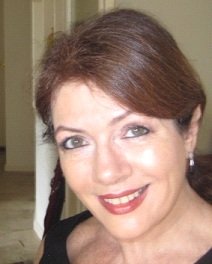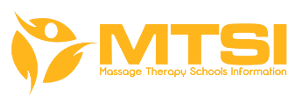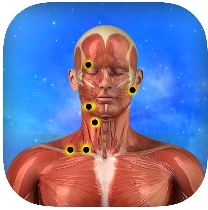
The inception of my Clinic was 1996. I enrolled at Nature Care College Sydney Australia in 1991 five years later I had established my Clinic. My previous career was in modeling, and television. However my initial work history started way back, working as the Head Receptionist at Mc Auley Medical Centre Auckland New Zealand where I later trained as a Counselor.
My Clinic, Military Rd Clinical Massage as it is known today, was known for Therapeutic Remedial Massage; over time I later changed the name to Clinical. As our approach to Massage changed, also my mind set. To fill a market need and become recognized in a competitive market we needed to set ourselves apart. I hired the expertise of a leading Graphic Designer in Advertising, frighteningly expensive, but well worth the investment. The expense was risky, but one of the best decisions I ever made!
Today, nearly 19 years later the Clinic has seen many changes. From once having six therapists including myself from 1998 till 2007. The therapist’s worked on a contract basis receiving 60% of the fee. All advertising and expenses paid, including GST. Today I am still the business owner but now work as a sole practitioner, although there is another therapist who works Sundays, on a room rental basis.
When the Clinic was running on six cylinders I was also writing and presenting Massage Workshops. Two accredited courses The Business of Massage and Massage and Disorders 2003/04 (The latter presented by a Medical Doctor and Doctor of Chiropractic) At the same time (2003) I was approached by one of Sydney’s largest and leading Advertising Agency to implement for them a Corporate Massage Program. (2003-2007) It was conducted using full- length tables, not massaging at a workstation. Staff received 30 minutes each and 11 massaged in a day.
I live and work in the same area. Sometimes it feels like the rest of the world exists out there and I make a brief appearance. It has taken almost 20 years to find the absolute best work/life balance. I think I am now totally unemployable after having worked so long on my own. This for me is the best life has to offer, feel blessed.
2. Tell us why you chose to go into massage and at what point in your life did you decide to do so? What were you doing at the time? Where did you first hear about the massage career? What factors influenced your decision? What were you looking to get out of this decision?
Well to tell the truth it was a decision I was forced into making. At the time I was enrolled to become a Naturopath. Into my second year I found myself a single Mum with a three-year-old child. The only qualification I had obtained was the Diploma of Remedial Massage. I investigated the possibilities of making a career from Body Work. It was not my first passion.
I did not feel I would be strong enough nor did I see myself as that keen on working one on one with people not wearing clothes! The College employed me as their Clinic Manager where I could also work as a Therapist to supplement a better income. The worm turned and I fell in love with Body Work. So that was the start of my career, a slow ember that developed into a burning passion.
By 1998 I had gone on to complete two more diplomas racking up an academic record of over 1700 hours. So what was there to achieve from this need for ongoing education? I wanted to be good I wanted to be very, very good. My circumstances needed me to be earning a good income. Now that was a challenge!
3.What were some of your questions and concerns before further pursuing your massage therapy goals? Talk about concerns with school and the profession itself.
I wasn’t sure I could earn a decent living. The amount of flexibility was the main attraction, especially with a child. I also had concerns about the type of clients I would attract. Massaging women was okay but earlier on I had a few male clients I felt uncomfortable with massaging.
Speaking with other therapists this was not an uncommon feeling. It didn’t take long to learn, how to handle this situation. It is very important to show a professional work presentation, professional boundaries, being direct and honest, always trust your gut instinct. Problem solved.
A concern with the Colleges I had was I felt when new Graduates came to work with me they always thought they should be earning more. (My payment to Therapist’s was 60% of the fee.) This myth was generated from the Colleges telling new Graduates what they were entitled to earn.
Unfortunately this is also one of the main reason I stopped hiring Therapists. Clinic owners were getting a bad rap. In 2007 I decided to stop hiring contractors, at first this felt like a very risky business decision. With hindsight this turned out to be a very intelligent business decision. I restructured the clinic hours, increased the fees and never looked back.
The Clinic now worked harmoniously, no stress, no more worrying about keeping therapists with enough clients (Now, that was stress!) My book work significantly reduced gave me much more free time. Financially I was in a much healthier place. This decision was unfortunate for Graduates. Colleges should have worked alongside Clinic Owners to get their new Graduates working in reputable Clinics, where Graduates are nurtured in a professional environment. Maybe it is different now.
4. What is your specialty and what are the top three contributing factors to your success today?
My main specialty is Clinical Massage. To clarify Clinical Massage; I treat specific conditions/problems/situations. An example may be whereby a doctor has referred their patient with a particular muscular condition. My role is to work with the client through history taking and observation working to a treatment plan.
Through becoming a ‘muscle detective’ I work to find the best treatment to resolve muscle pain. Summing up how to get a loyal client base through word of mouth, referrals. Number one, absolute honesty, number two, years of experience teach an array of skills and techniques, and number three, continuing education.
5. What do you like about your specialty? What do you like about what you do in general as a career? Why?
I love the fact I get so many referrals from other Health Care Practitioners. It feels I have earned the respect from my fellow professional colleagues. My work as a Remedial Massage Therapist is just that Remedial, albeit with a Clinical slant! The role fits snuggly in with the Allied Health Profession.
One day I would love to see our Industry mainstream. It is slowly evolving. We need to pick up the pace. Back in 2000 here in Australia Health Funds introduced Remedial Massage as part of a Health Package. Our services rebated, if you held a Remedial Massage Diploma. This was sadly a missed opportunity when our Industry Heads should have come to the forefront and developed a high profile synonymous with Allied Health it was also a time we should have become GST exempt.
If the Health Funds recognized our health benefits then we were a Health service, No? Never miss an opportunity to wave the flag, I feel this is also part of my career!
6. What do you not like about what you do? Why?
I can’t say I have a real dislike about my work. A short time ago I was starting to feel tired and was ‘clock watching’. I used to tell therapists working in the clinic if you start to watch the clock then it is time to stop working in Massage. Advice heeded I cut down my hours although still maintained five days. I work 3 half days and two full days and limit my work to maximum 18 clients in a week now. Enjoyable pace.
7. If there were three things you could change about your work or the industry as a whole what would they be? Why would you change them? What would you change them to?
Education, education, education. We need more evidence based Massage findings to help us in our clinical work. I feel with more education, the professional standards would rise. Some of the myths that abound today would not exist. The more you learn the more your eyes are opened.
When I look back straight out from College, I was guilty of some of these myths. It saddens me when fellow Therapists criticize one another, no one is better or worse we are just in different places at different times we need to nurture one another not compete. We need to help open one another’s eyes, not close them with a closed mind.
8. How long do you plan to practice and what do you plan to do after?
I plan to practice till I need a Zimmer frame and can’t get up the stairs. After that….who knows?
9. Do you currently have another job or business whether full time or part time? Tell us a bit more about it and how you are able to juggle that with your massage career?
I have had this occupation since 1993. Always worked full time in Remedial Massage till this year when I cut down my hours.
10. What are some mistakes you made in your career pursuit that you’d like to warn other students about so they can learn from your experience and avoid it?
I don’t think I could answer this, I made many mistakes, not enough space. Then again if I had known the mistakes I would make, before I ventured out I would never have started. Making mistakes has been a big part of my success. So many areas come into play. What stands out is having absolute determination, passion and needing to stay alive financially to survive. You have to take the risk if you believe in yourself, you only have yourself at the end of the day, there is ever only you.
11. What would you advice someone who is looking at massage therapy schools? What do you recommend they look for and how? How do you recommend they determine whether the school is the right one for them?
Research as many schools as you can. Look for Colleges that fit in with your philosophy. However the staff play a tremendous role A school is really only as good as their teachers. The teacher is your real mentor. I found I needed to look up to my teachers to get the best results. I had wonderful teachers.
12. What do you recommend for someone who wants to go to massage school but cannot afford it?
We all want to do things we think we can’t afford. Money is only a means to an end. Sometimes this can be an excuse for not doing something.
13. What are your three biggest points of advice for an aspiring massage therapist today? What should they do/not do? What should they think about and consider?
Learn to say NO. Learn as much as you can from people who are successful therapists. Keep learning and developing new techniques and skills keep up to date with new technology and therapies. Understand the rudiments of massage therapy. Understand that massage can quite often be a very solitary occupation.
It is one occupation you cannot measure yourself by earning a weekly income the true picture emerges from the yearly income. The explanation for this is because you may have some bumper months then some dry months. When the pot is empty so are we but often forget when it was overflowing. It is hard physical work. It is very important to keep yourself fit and healthy, balanced and hydrated! (Thirsty work massaging)
15. Any open thoughts / comments – anything else that you’d like to share about yourself, the massage industry, profession, future, etc? If nothing, make one prediction for the future of massage?
All I can say for me being a Remedial Massage Therapist has been the best decision I ever made, I love the work, I love my clients, I love how you can always keep learning. I have met some absolutely amazing people and I enjoy life because this career is so stress free and calm. Where can you in life choose your own hours, do what you love doing, listen to great music, never have to have other people around who give you grief, financially rewarding (learn about business)
You can close the door; there’s just you and your client. The outside world can cease to exist for at least an hour…pure bliss! What is my prediction for the future? When Massage Therapists learn the balance between the commerce side and the healing side (and a thin balance it is) hopefully we also become a more mainstream profession attracting credible health benefits aligned to the Allied Health Arena.
16. What is your passion outside of massage? What are your hobbies and interests which you pursue when you are not working? Tell us why you enjoy what you enjoy.
I enjoy writing, reading, music, people but most of all family and friends. I enjoy all the above, to me, that’s living!
Petrina Steer is a Licensed Massage Therapist in Australia. She can be reached on her website here.








Leave a Reply